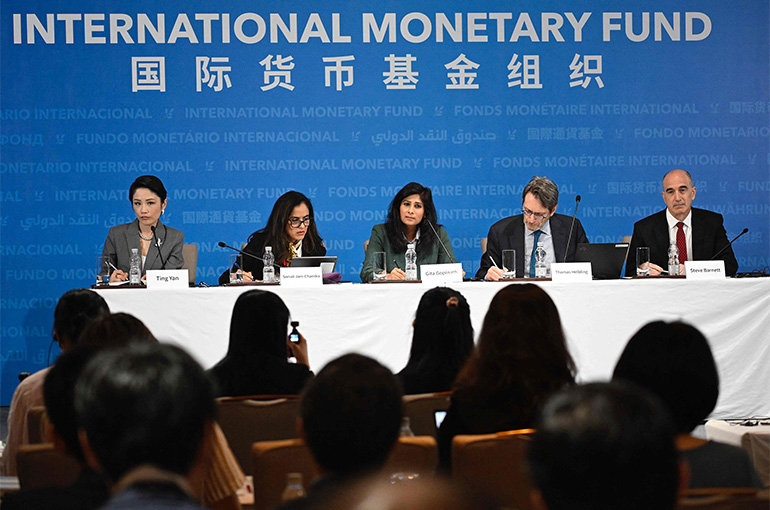 China Economic Growth Forecast Raised to 5% by IMF After Strong First Quarter
China Economic Growth Forecast Raised to 5% by IMF After Strong First Quarter(Yicai) May 29 -- The International Monetary Fund lifted its forecast of China's economic growth for this year and next year to 5 percent and 4.5 percent, respectively, due to robust first-quarter data and policy moves.
The predictions represent 0.4 percentage point increases from earlier estimates released last month, the financial agency of the United Nations announced yesterday after its team completed a nearly two-week trip to the country, meeting high-ranking officials.
The outlook is improving in the short term but more policy work is needed. Inflation is expected to rebound to a low level as core inflation should rise to 1 percent this year. In the medium term, China's economic expansion will slow to 3.3 percent by 2029 due to the aging population and slowing productivity growth. Some of the near-term risks are about the sluggish property market as China should mitigate potential macro-financial spillovers.
"Risks are tilted to the downside, including a greater- or longer-than-expected property sector adjustment and increasing fragmentation pressures," said Gita Gopinath, first deputy managing director.
"The ongoing housing market correction, which is necessary for steering the sector towards a more sustainable path, should continue," said Gopinath who used to be the chief economist of the IMF. Authorities have implemented various measures to guide the transition, including lending support for affordable housing, she added.
Macroeconomic policies should focus on supporting domestic needs and easing downward risks, per Gopinath. China's fiscal policy should prioritize the provision of one-time central government support to the property sector.
China's easing monetary policy this year is welcome but due to low inflation and output that is below potential, there is room for more relaxation, per Gopinath. Making the exchange rate of the yuan more flexible could lower deflation risks and help absorb external shocks, she added.
China, and especially local governments, face major fiscal challenges. To stabilize debt, it is necessary to pursue sustained fiscal consolidation in the medium term. Restructuring local government financing vehicles' "unsustainable debt" could help ease these pressures, Gopinath added.
China needs to carry out structural reforms to address headwinds to achieve high-quality growth, the financial expert said. Some of the key tasks are improving the social safety net to rebalance the economy toward consumption and liberalizing the service sector to create jobs, she concluded.
Editor: Emmi Laine